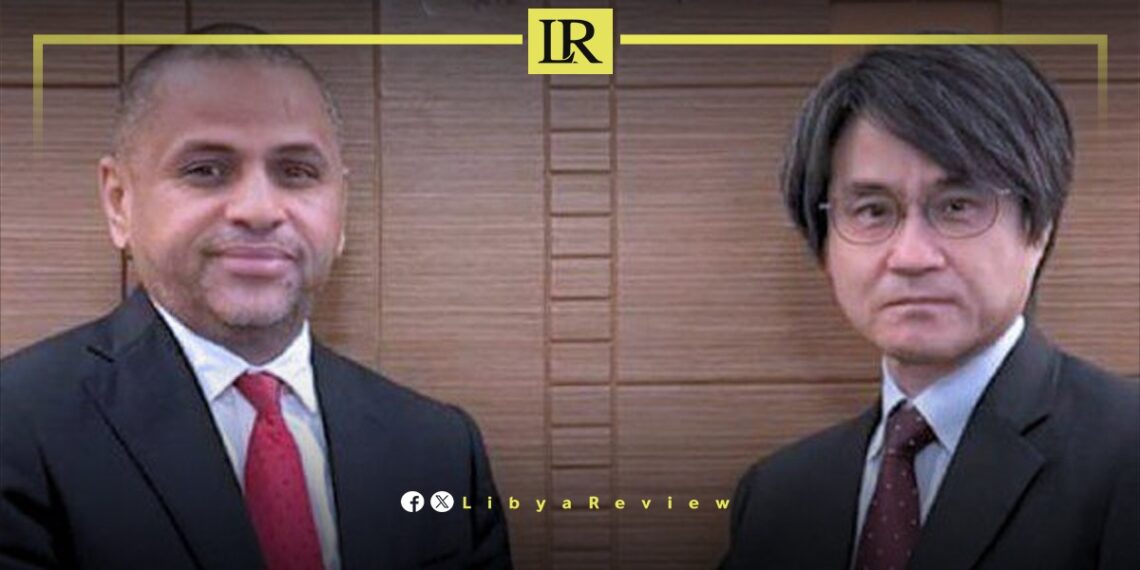On Wednesday, the Chairman of the Libyan Investment Authority (LIA), Ali Mahmoud Hassan, met with the Japanese Ambassador to Libya Shimura Izuru to discuss the effects of the current freezing system on the Authority’s assets. Japan currently chairs the Libya Sanctions Committee for the 2023-2024 period.
During the meeting, they reviewed the latest updates on the investment plan submitted to the UN Security Council Committee, established under Resolution 1970 (2011) concerning Libya.
This plan outlines the LIA’s vision, strategic goals, and promising opportunities aimed at boosting Libya’s economic performance. Both parties emphasized the negative impacts of the asset freeze on the LIA, especially amidst the rapid growth of global markets.
The Libyan Investment Authority, established in 2006, manages Libya’s sovereign wealth fund, comprising various international investments. Since 2011, these assets have been frozen following international sanctions imposed due to the civil conflict in Libya. The freeze was intended to prevent the misuse of Libya’s wealth during political instability.
However, prolonged restrictions have been criticized for hampering the LIA’s ability to effectively manage and grow its investments. The LIA has consistently called for a review of the sanctions, arguing that the freeze limits its potential to contribute to Libya’s economic recovery and development.
As Japan heads the Libya Sanctions Committee, it plays a crucial role in evaluating and potentially adjusting the sanctions affecting Libya. This meeting between the LIA and the Japanese ambassador underscores ongoing efforts to find a resolution that balances oversight with the necessity of economic growth and stability in Libya.
The discussion is particularly timely, given the current dynamics of global markets and the need for strategic investments to foster economic development. Revising the sanctions regime could allow the LIA to reinvest and reposition its assets, unlocking significant growth potential for the Libyan economy. This move would align with broader international efforts to stabilize and rebuild Libya, fostering a more robust and resilient economic framework.


